Moving Dragons Easy Magic Eye With Answers
In Dungeons & Dragons, there are many ways a DM can challenge the party besides pitting them against ever stronger or more numerous enemies. One of the best alternative challenges is to give the party a riddle to solve in order to advance the campaign. This is often the best way to challenge an experienced party that has gotten used to winning fight after fight.
While the answer to these riddles is usually spoken, the answer can also be a physical object that is presented to whomever or whatever is asking the riddle. Here are great riddles that a DM can use to challenge a party.
Updated on April 22, 2022, by Jeff Drake: Dungeon Masters can never have enough riddles on hand while managing an adventure. Just in case DMs using this article have already run through the riddles, this update will add five additional riddles for them to use. As usual, these new entries will give suggestions on when and how to use these riddles; however, DMs should feel free to use these riddles as they wish. One quick reminder - players like an occasional riddle, but an excessive amount of them can really bog down an adventure. This is especially true if the players keep getting the answers wrong.
20 "Time existed before me, but history can only begin after my creation."
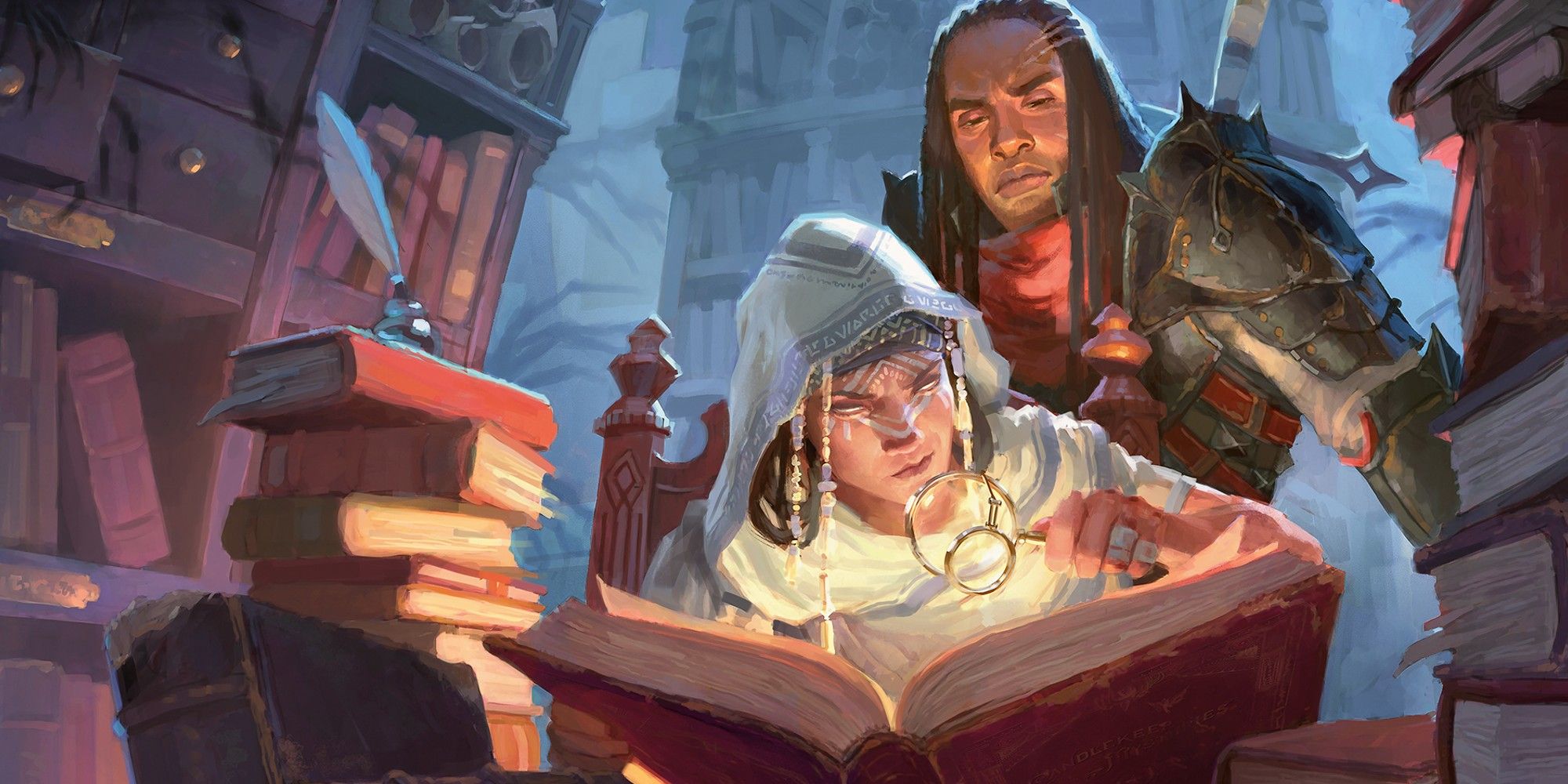
This can be a tricky riddle because many people make the mistake of assuming everything that happened before the present, and history, to be the same thing. However, history is defined as a written account of people and events of the past. Anything before the invention of "writing" is called prehistory, making writing the answer.
A good location to use a riddle like this would be a library, or a sage's home. Alternatively, the answer to this riddle could include feeding a piece of parchment and a writing utensil to a magic mouth. A failed answer to this riddle might be used to send the party to the past.
19 "Some are cherished, some are hated, and even if lost they remain with you."
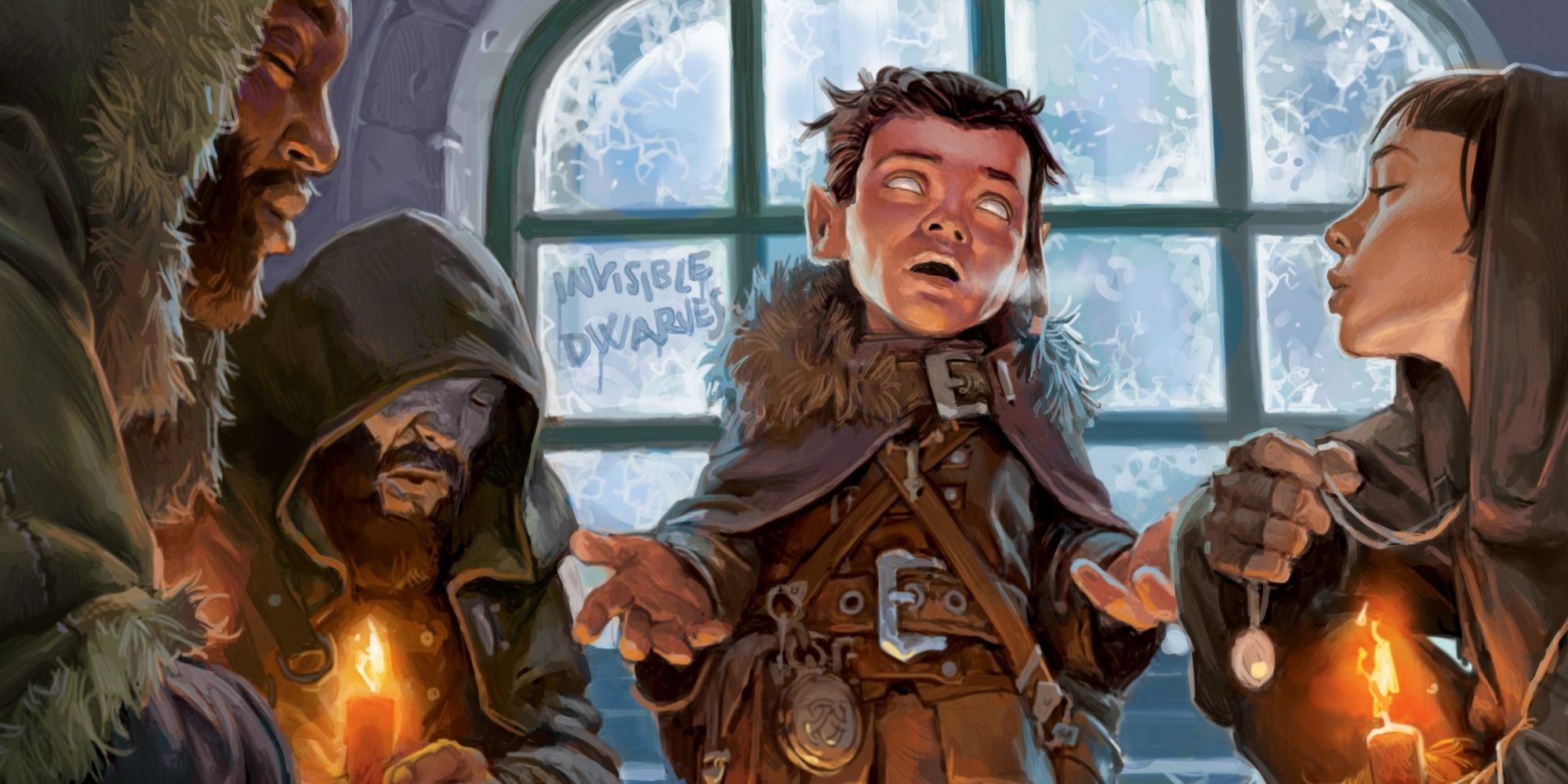
For many, this riddle might be a bit obvious. The answer is "memories" and the word "cherished" kind of gives it away; especially if adventurers are given a generous amount of time to think of an answer. However, a DM can make this riddle a little more difficult by adding a short time limit.
Solving, or failing, this riddle is an opportune moment for the DM to have the player that answered the riddle remember a long-forgotten memory - one that leads to a new adventure. Conversely, the DM could have a wrong answer remove memories from the character; perhaps any memories of their time traveling with the party.
18 "They arrive every night whether invited or not. They can be seen, but not heard or touched. If one falls the rest keep moving."
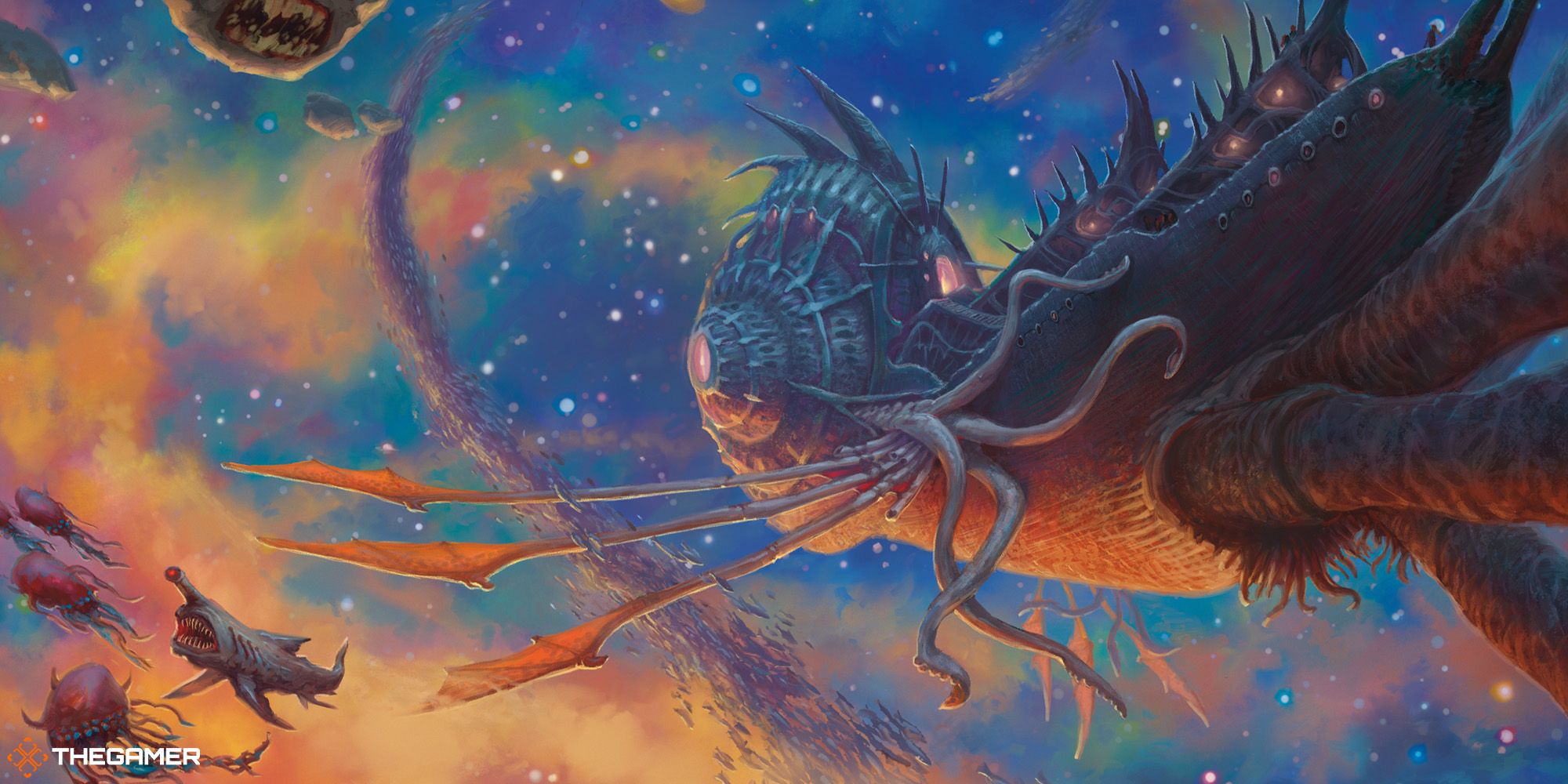
Let's get something out of the way right now, the answer to this riddle is not Underpants Gnomes, it's "the stars". Although, technically there's absolutely nothing preventing the DM from having a gnome obsessed with underpants from asking this riddle.
Joking aside, DMs can make this riddle more difficult by having the players encounter a ghost (non-hostile for a low level party) shortly before they are asked. This might trick the party into thinking the answer is ghosts. A good use for this riddle is to use it as a magical lock and key for a door that leads to an observatory - or a secret, and conveniently placed, alternate exit from a dungeon.
17 "Your mother is an orc. Your father is a dwarf. What are you?"
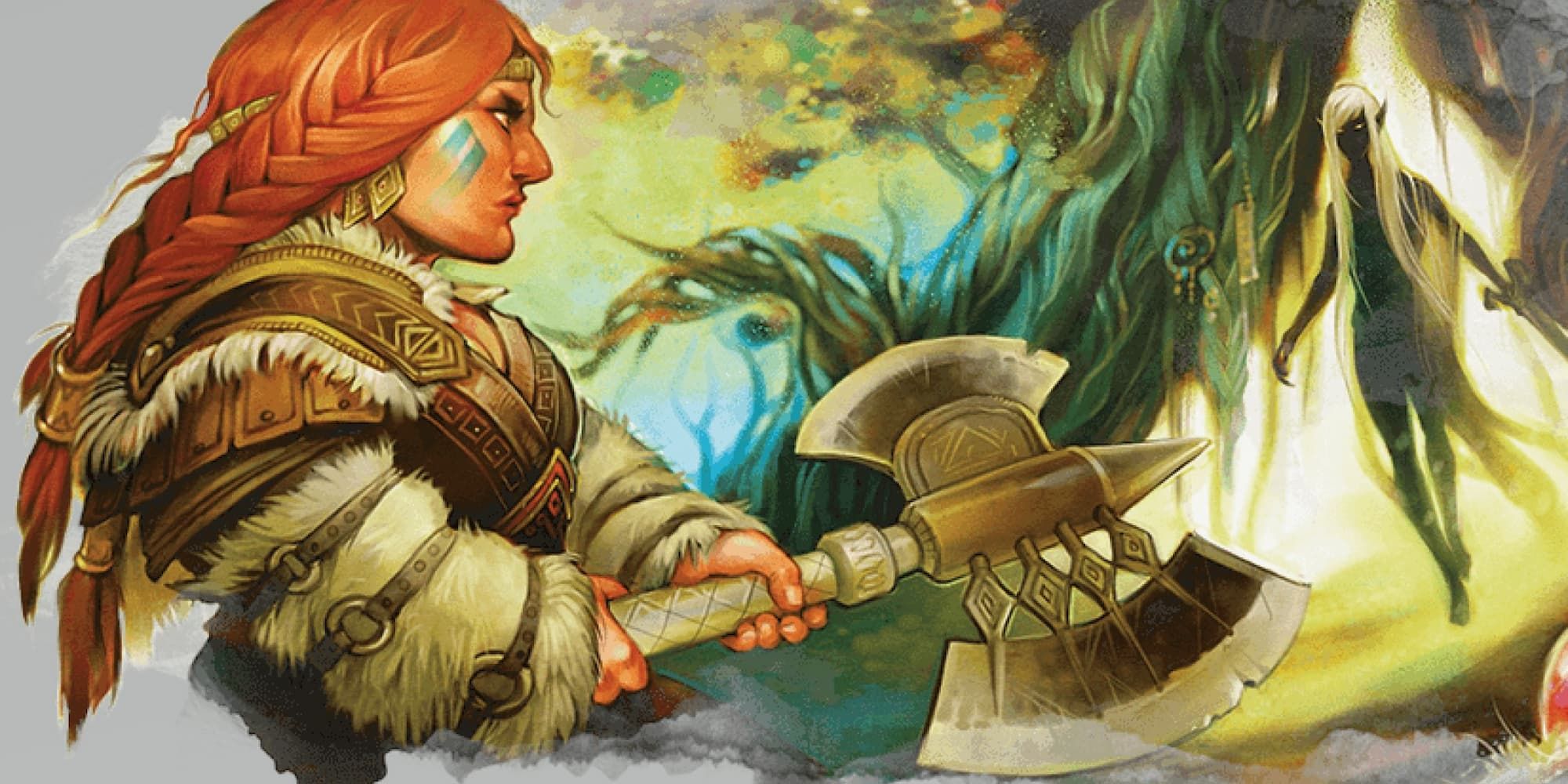
This is the perfect riddle if the DM needs to inject a little levity into the adventure; sometimes things get too serious playing D&D. Riddles like this one remind the players they are playing a game. The answer is, "a dork"; which should get a chuckle from the players and help make that night's play-session memorable.
Answering this riddle incorrectly could include having the character's race change over time. They should be given a warning this is happening, like being told "For not knowing what you are, you must now suffer not knowing what you shall become." This is a good side adventure for the DM to throw into the mix.
16 "They call me the king. I have the eyes, hiss, and fangs of a snake, but have no scales or venom."
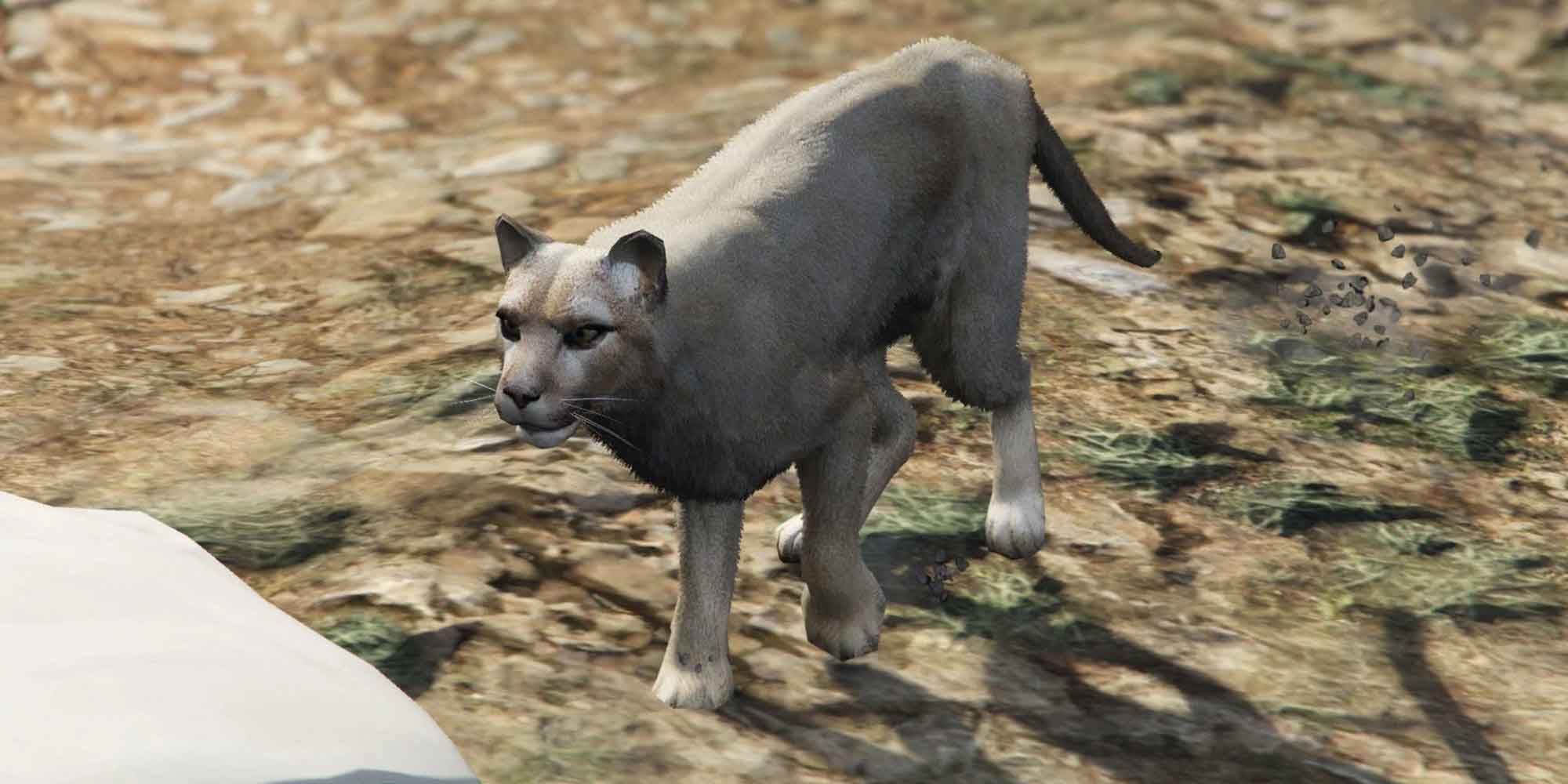
The answer to this riddle is "a cat", or "cats"; which probably makes this an easy riddle for cat people. Cat people meaning people that own cats, not humanoid cat creatures - just to be perfectly clear. Having a sphinx ask this riddle might be a little on the nose and make the riddle far too easy.
A yaun-ti asking this riddle, on the other hand, might trick the players into making a wrong guess. Answering the riddle might include actually procuring a cat of some type and getting it to a specific area. Fighting a dragon is easy when compared to trying to catch a wily stray cat in a crowded marketplace.
15 "I have towns without people, forests without trees, and rivers without water."
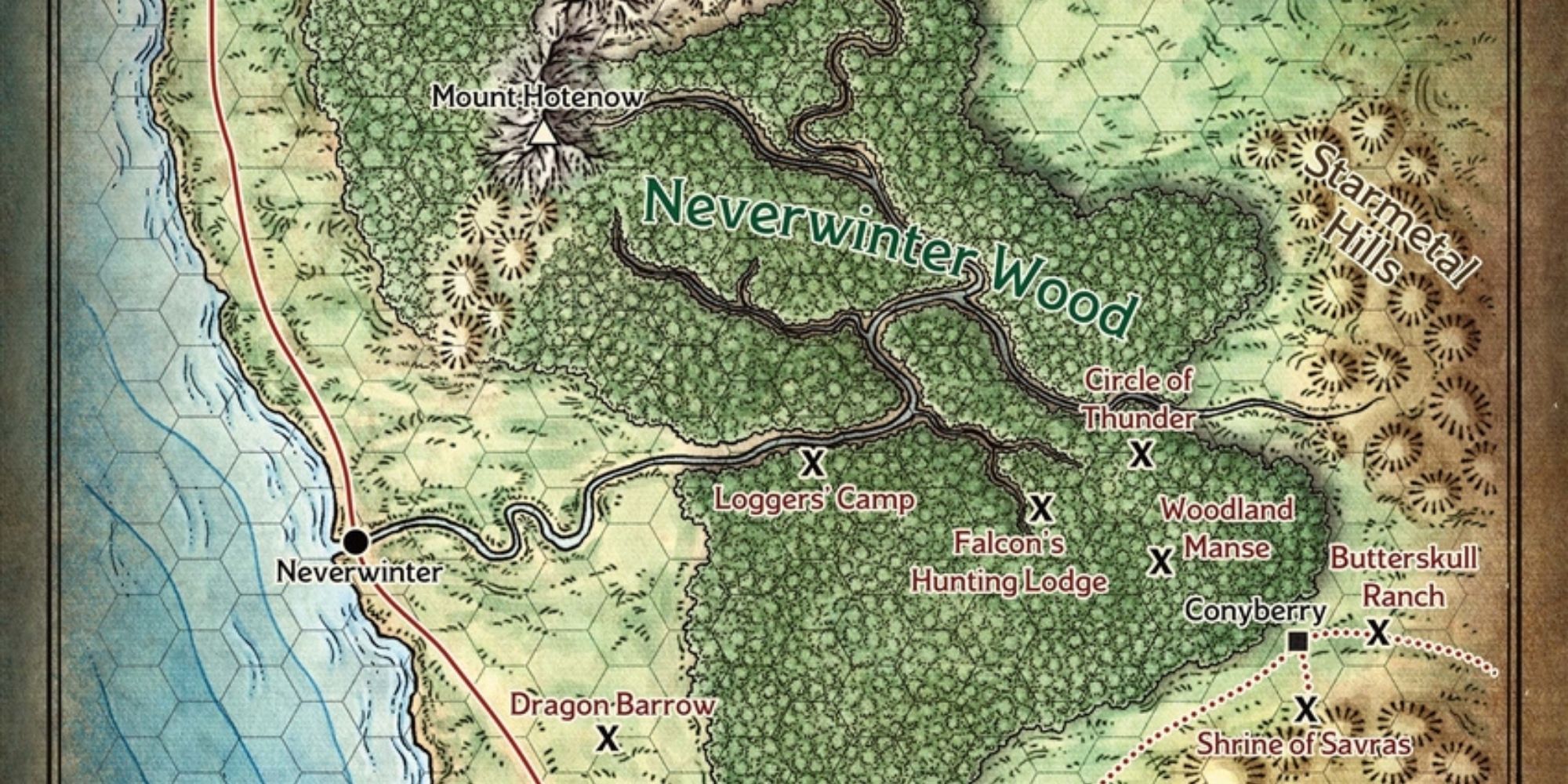
This is a fantastic riddle whose answer is obvious, once it is figured out. It is unlikely that the party will be able to quickly solve this riddle unless one of them has already heard it. The answer is "a map". The DM could make the answer an actual map that is offered to the one asking the riddle, perhaps a specific map the party has been using.
The DM could give the players an actual map, but have them give it up to solve the riddle. If they haven't made a copy beforehand, this will certainly make the campaign more difficult.
14 "I have a tail, and a head, but no legs. I am probably with you now."
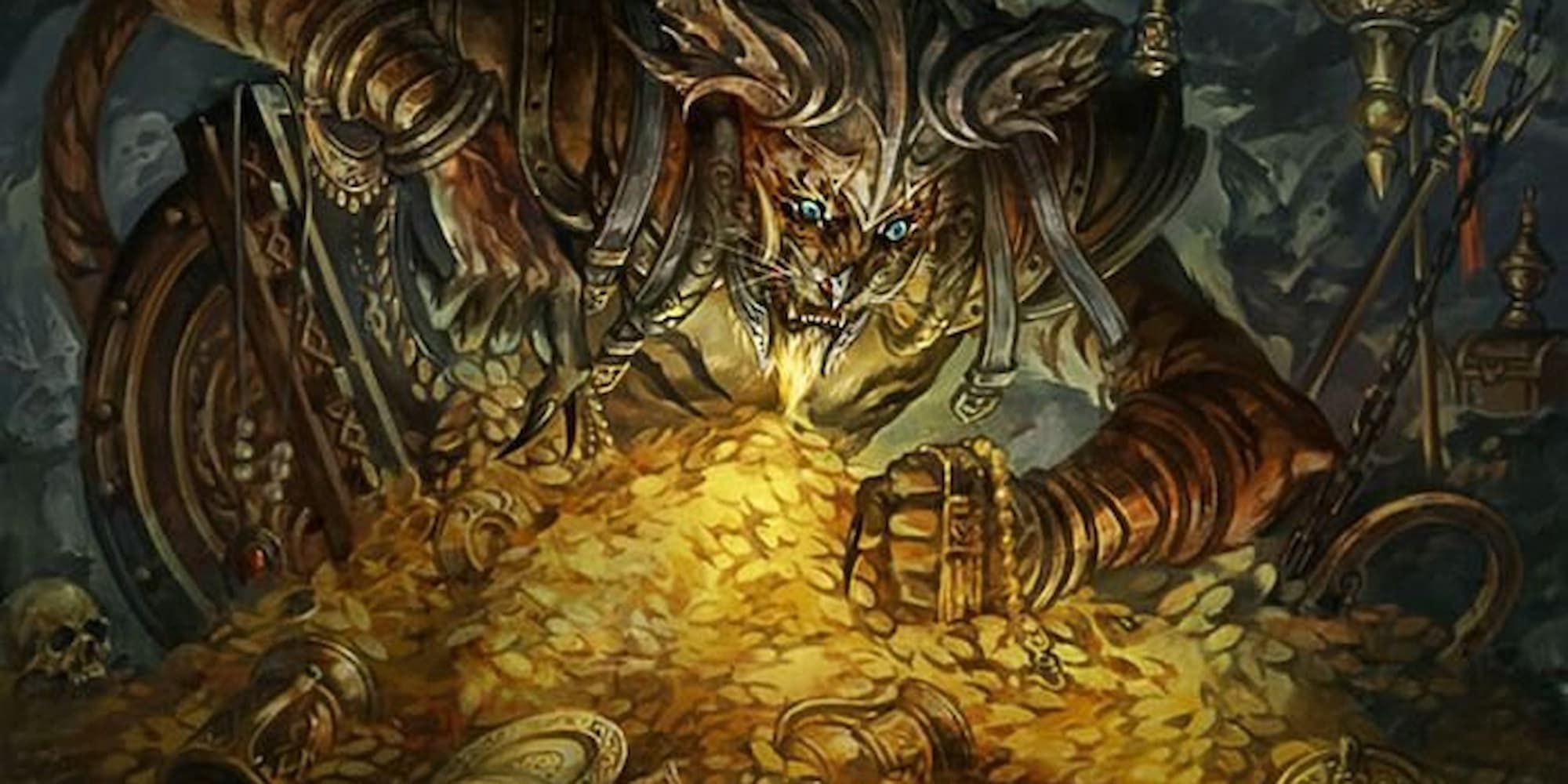
A clever party might solve this riddle after a few minutes of thought. If a DM is worried this riddle will be solved too easily they can always make the party answer two riddles to advance. The answer is "a coin."
Again, the answer could be a specific coin the party is carrying; possibly even a magical coin that the party has been benefiting from. This could also be a riddle a merchant asks before allowing the party to see his select merchandise.
13 "What has a golden head and a golden tail but no body?"
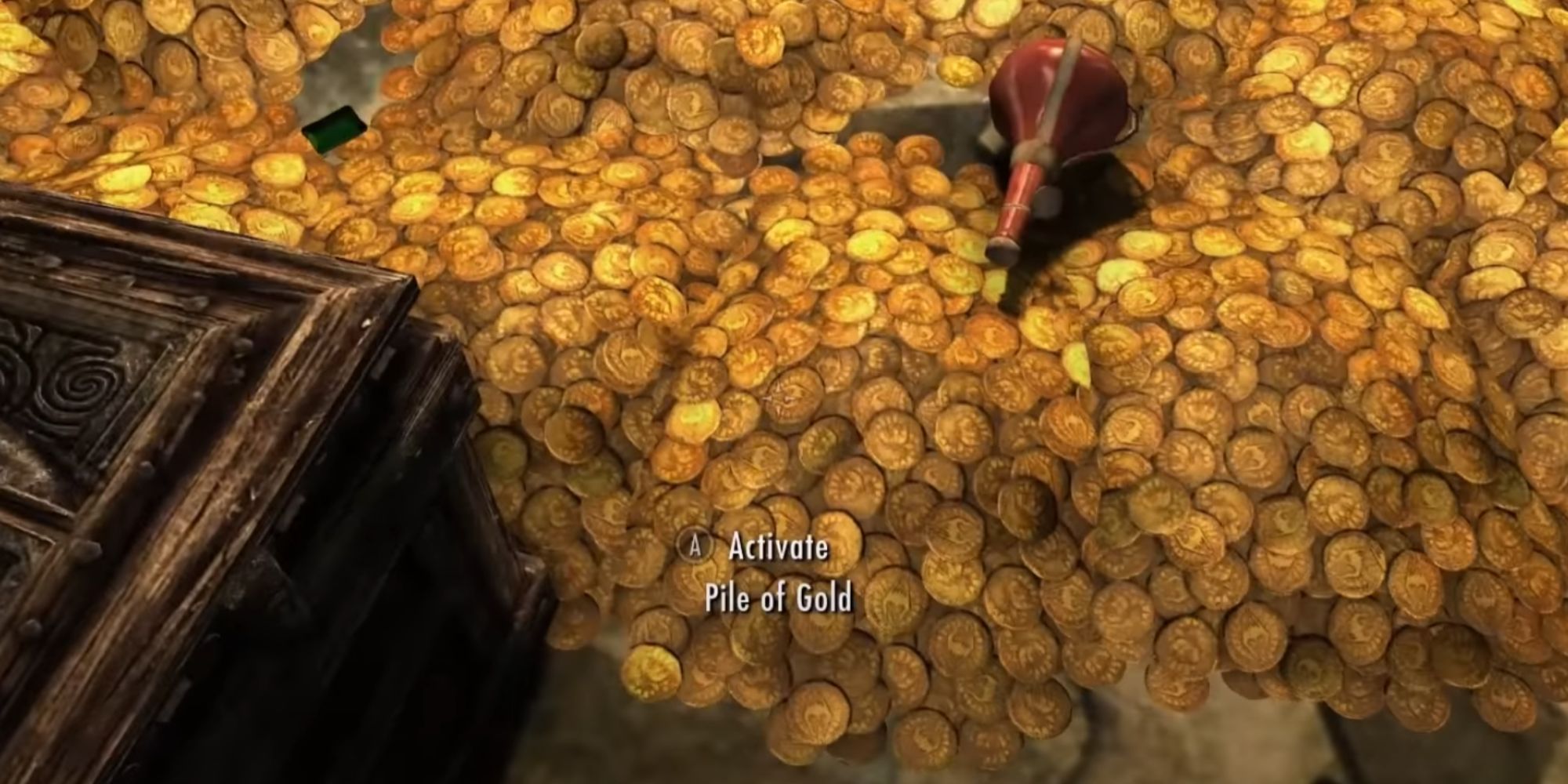
The answer is "a gold coin", and what makes this variation on the coin riddle a bit more difficult is the distracting image of glittering piles of riches. Players might get distracted by the thoughts of magical, exotic animals before considering simple like a coin.
Any adventure that might involve treasure hunting or gold of some kind could feature this riddle, or the DM could also use it to trick players into thinking gold is involved when it's really not.
12 "You cannot enter this room."
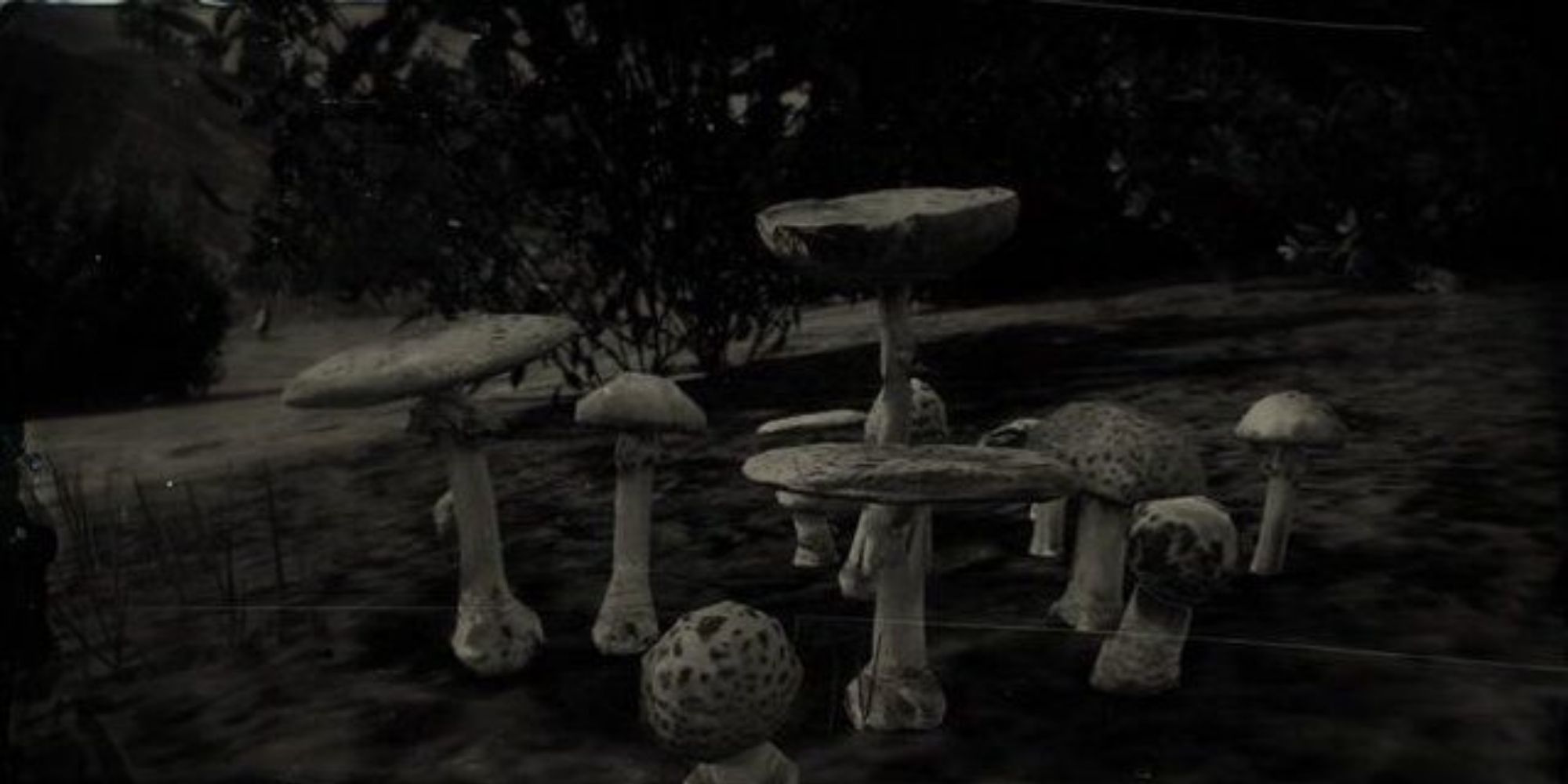
Here we have a pun, of sorts. It's "a mushroom". This riddle is a nice way to pretend a riddle is something else. What seems like a simple "do not enter" sign is actually a riddle, and the open-ended language gives the DM a few possibilities.
It could be that something related to a mushroom is the way to safely enter the room, or that there's something nearby related to mushrooms that players have to notice.
11 "I am the beginning of the end, and the end of before."
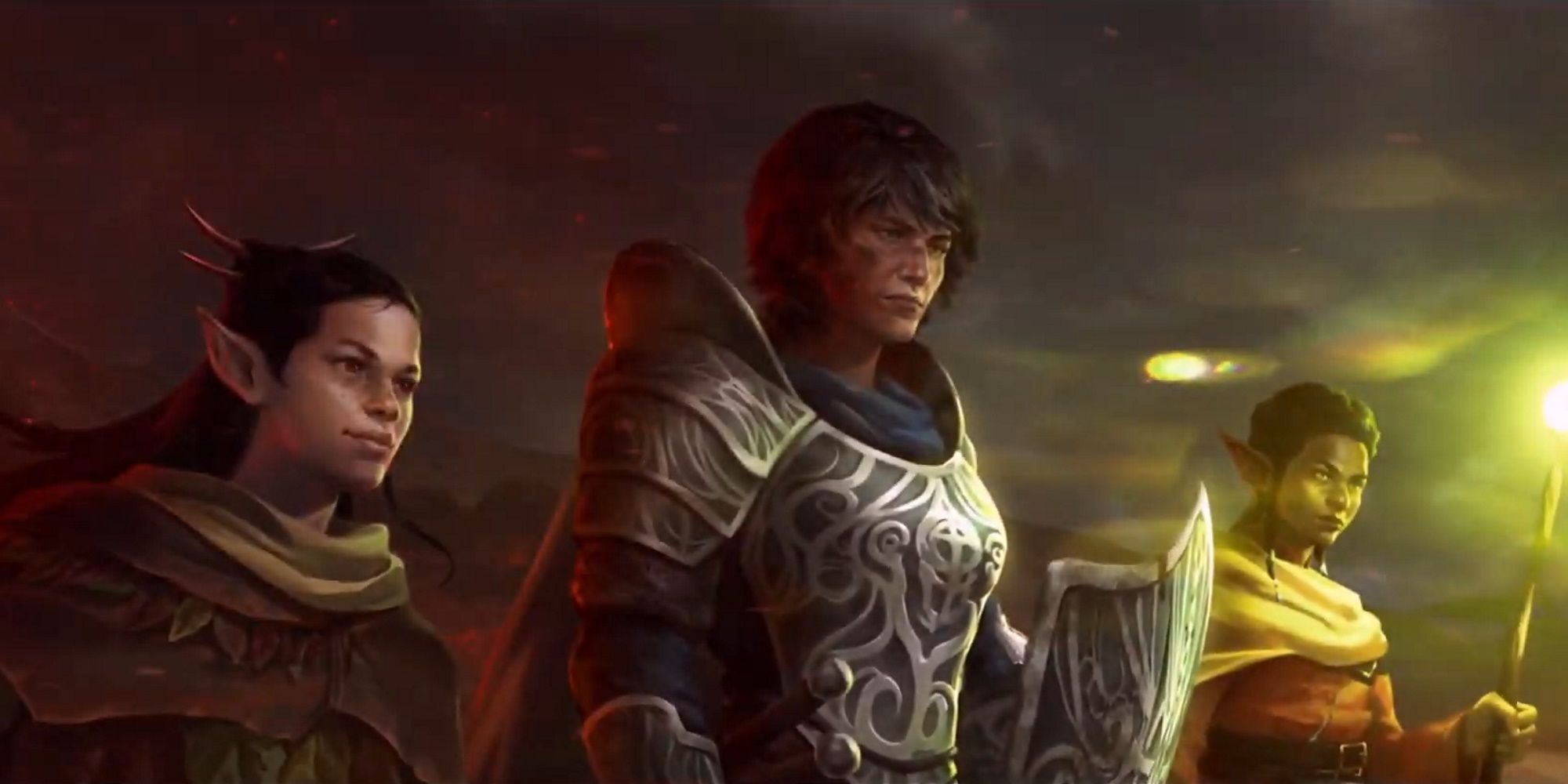
This will certainly get the party thinking, but that's the beauty of this riddle. The more one tries to think, the likelihood they will get further from the right answer. Most people will start thinking of events that signal the end or the beginning of something, like the sunrise or sunset, birth or death.
The correct answer is simple to see if the riddle is written, but if asked orally it is harder to see the correct answer. The answer is the letter "E." It is the last letter in the word "before", and the first letter of the word "end."
10 "I am an eye set in a blue face. My gaze feeds the world. If I go blind so does the world."
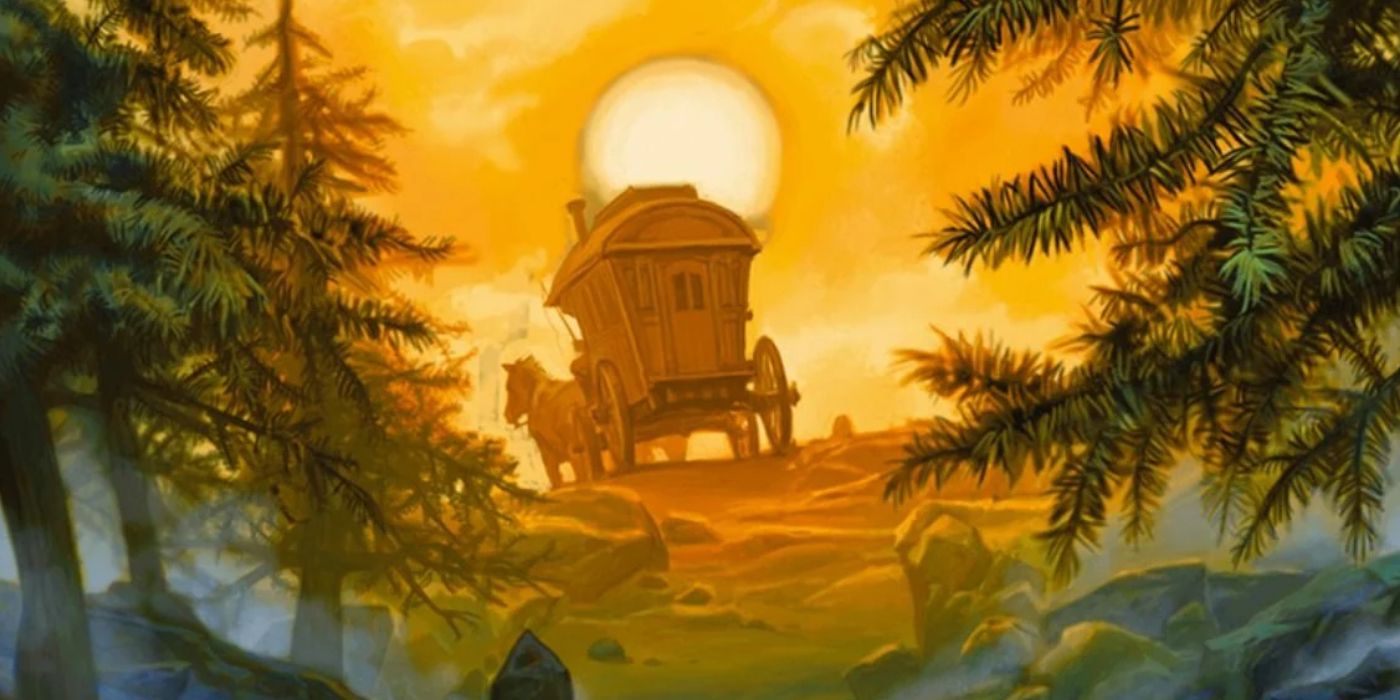
This riddle on its own might be solved too easily, but put in the right setting it could be quite difficult. The answer is "the sun" and the blue face is the sky.
If the DM decides the party will encounter several blue creatures before the riddle is asked, it could cause some misdirection in their thinking. Perhaps this riddle ties into a puzzle of some sort that requires the party to focus the light of the sun onto a specific location somehow, like with a spyglass.
9 "The more you leave behind, the more you take."
Red Dead Redemption 2 Bull Gator Footsteps In Mud
What is it? "Footsteps". This riddle could be a clever way of giving a party directions or a warning if it's combined with another clue with a number, direction, or distance of some kind. This one is tougher, however, which is why the DM should structure a story around it to give the players a clue.
It could serve as a reference for a path that characters have to follow, be part of a series of clues for a Ranger or Rogue who's following someone, or fill in part of the pursuit drama of a character is being followed.
8 "What has six legs, but walks on only four?"
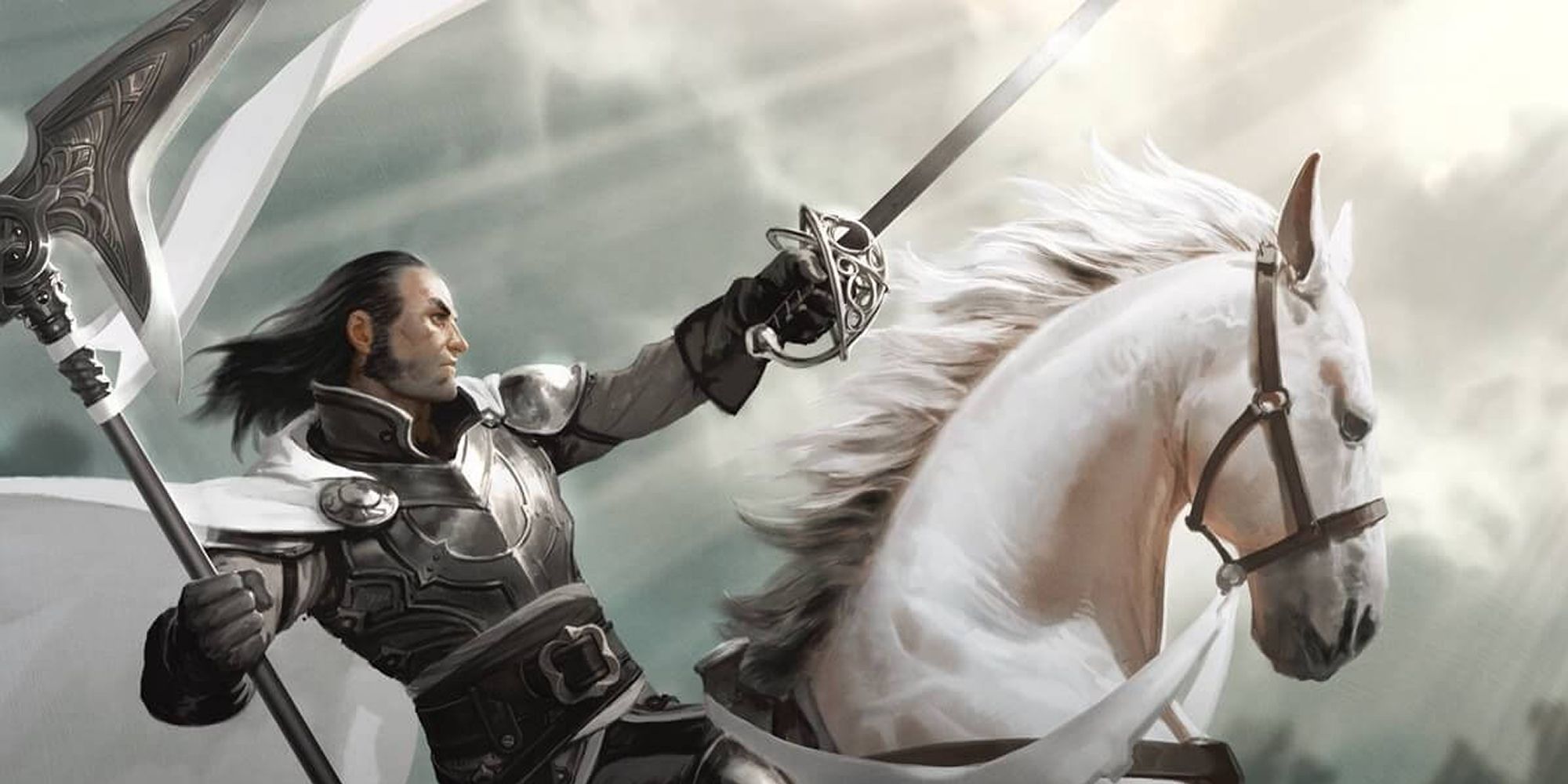
With all the weird creatures that inhabit the worlds in D&D this riddle might stump a party. They will probably start listing creatures with numerous legs like a behir, aurumvorax, or basilisk.
The answer is actually quite obvious though; it is "a person riding a horse". Again, the answer does not necessarily have to be spoken, it could need to be given in the form a small statue of a horse and rider, or it could require the person answering the riddle to actually be on a horse at the time.
7 "What breathes, consumes, and grows, but was and never will be alive?"
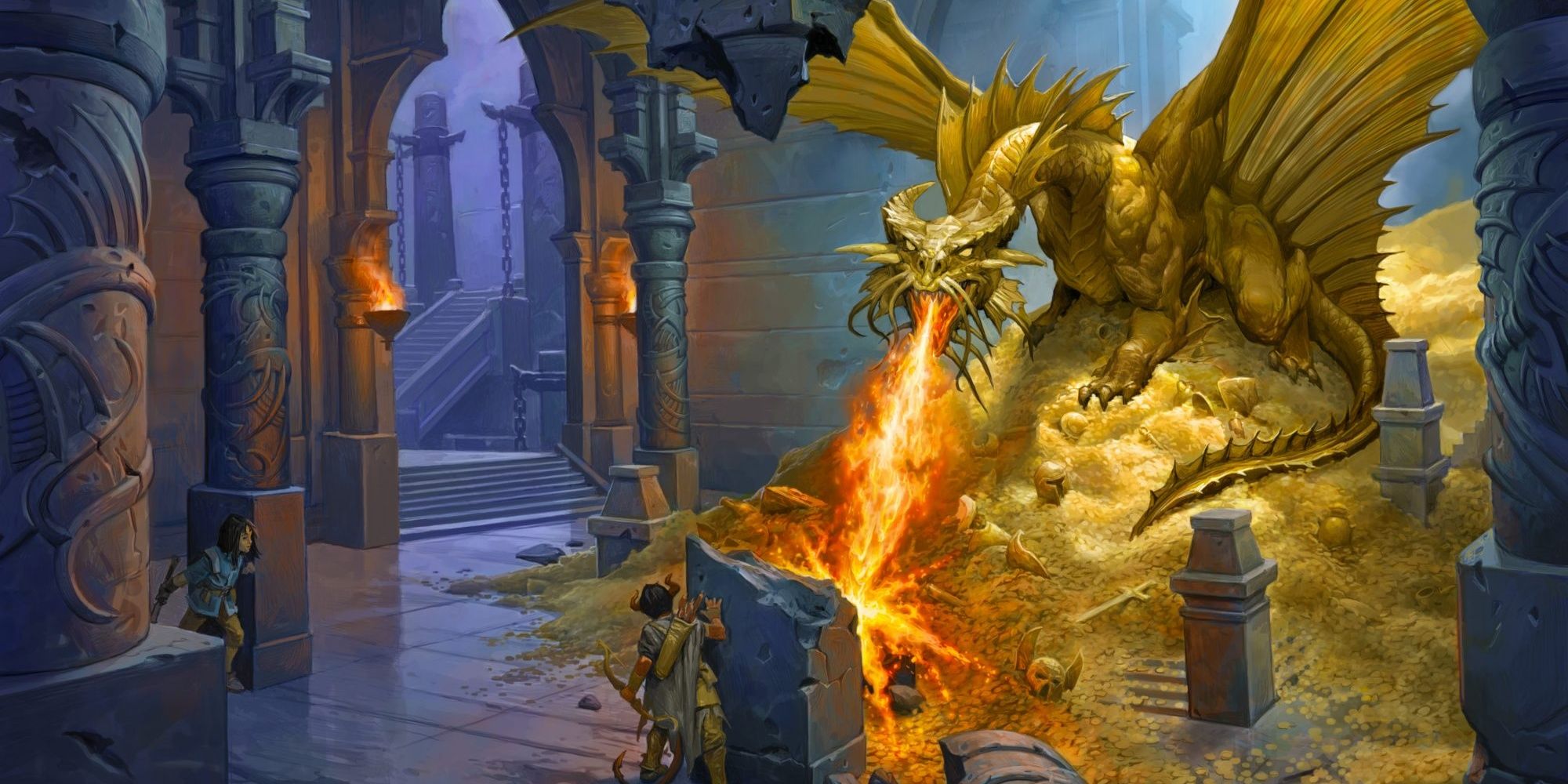
This riddle has a simple answer, but it is not immediately obvious when considering it is being asked in a fantasy setting with all manner of fantastic creatures. As with the previous entry, it is likely the players will begin thinking of less obvious answers, and will think about golems or some other form of a magical construct as a possible solution.
The answer is "fire" which needs oxygen, consumes that which it burns, and can grow if given space and sufficient flammable materials.
6 "What falls but never breaks, and what breaks but never falls?"
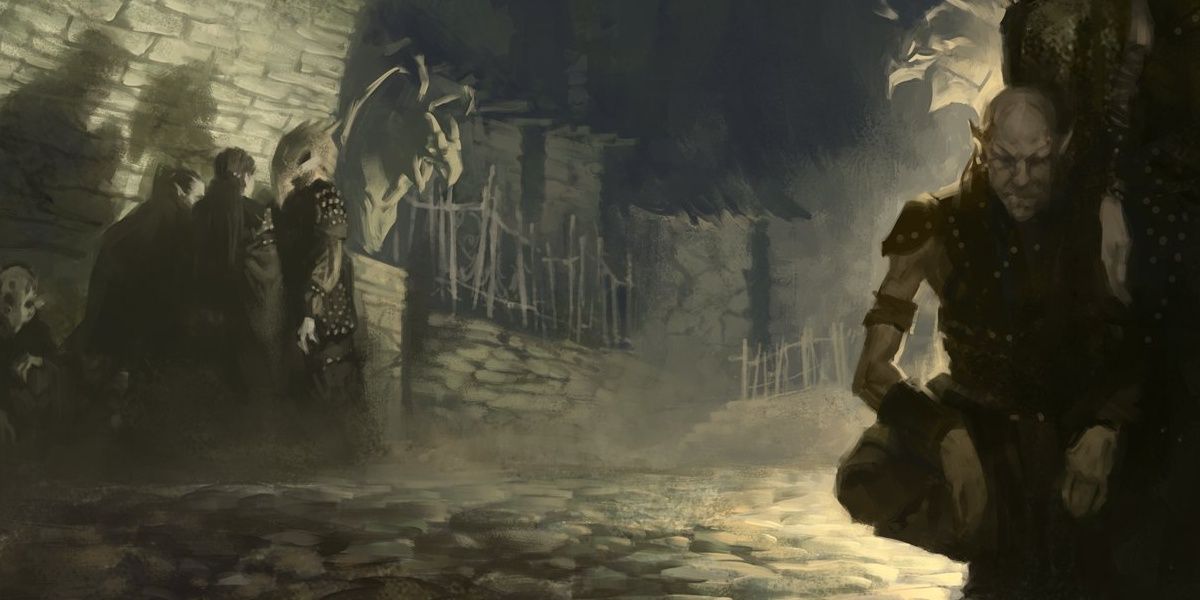
Here's a tough one, so make sure there's a fairly intelligent party member who can solve it. Another drawback is that it might not translate into other languages well, as it relies on two unique English expressions.
The answer is "night and day". You can't say that night breaks, only the day can break. Night, on the other hand, doesn't break, but it falls instead. The DM might think about leaving a few clues so players can get it.
5 "No matter is parched, no matter if rolled. No matter if magic, no matter how old."
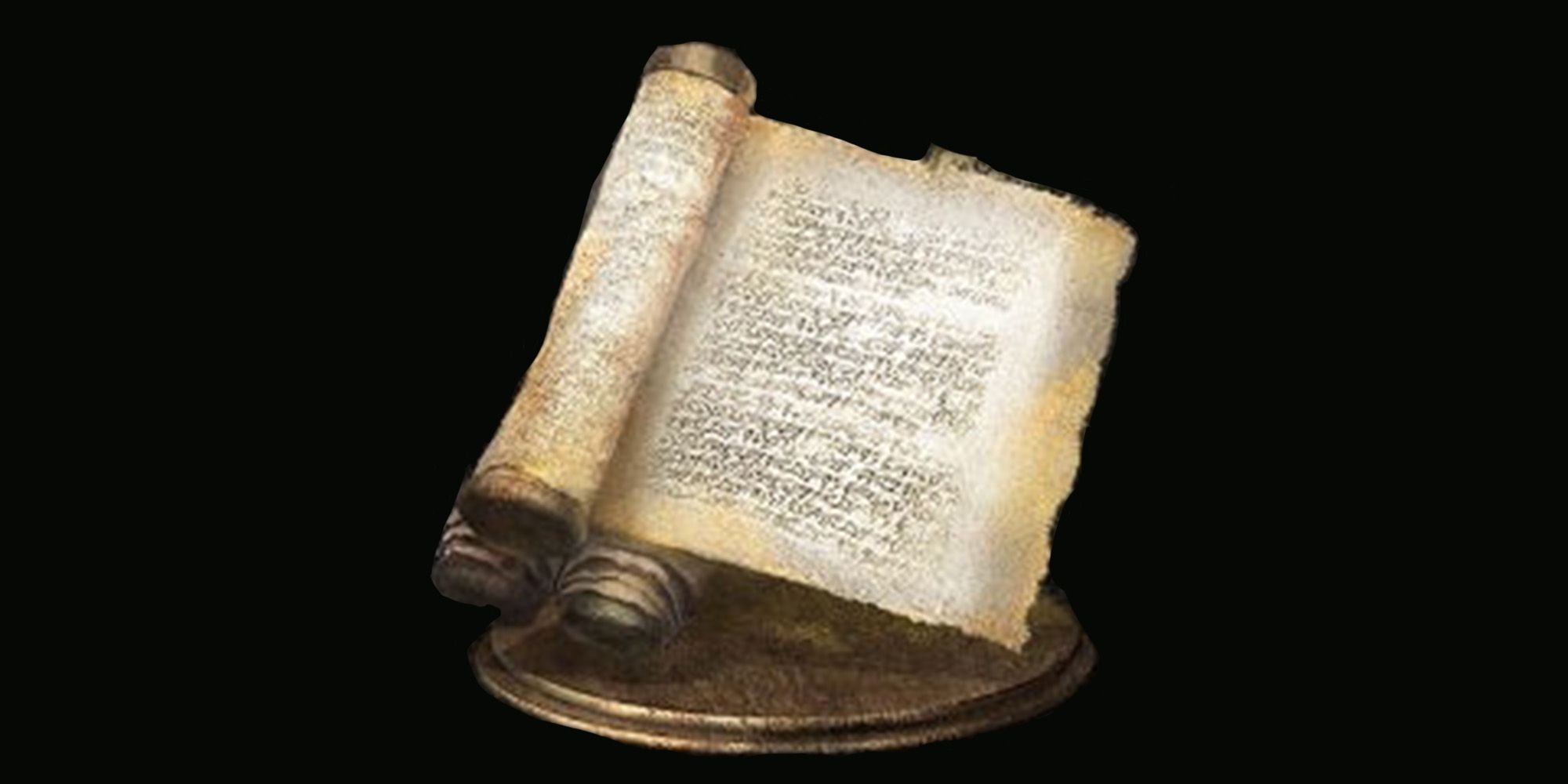
This riddle comes from the retro PC game Eye of the Beholder 2 from Westwood Studios; a game that had many clever riddles. It is very unlikely that one player in the party has played through this game and remembers this riddle.
The answer is "paper". The answer could be needed to be given with an actual piece of paper, something the party may not have at the time the riddle is asked. If the party does have paper it is probably going to be a scroll held by a spellcaster.
4 "Fruit Of The Earth"
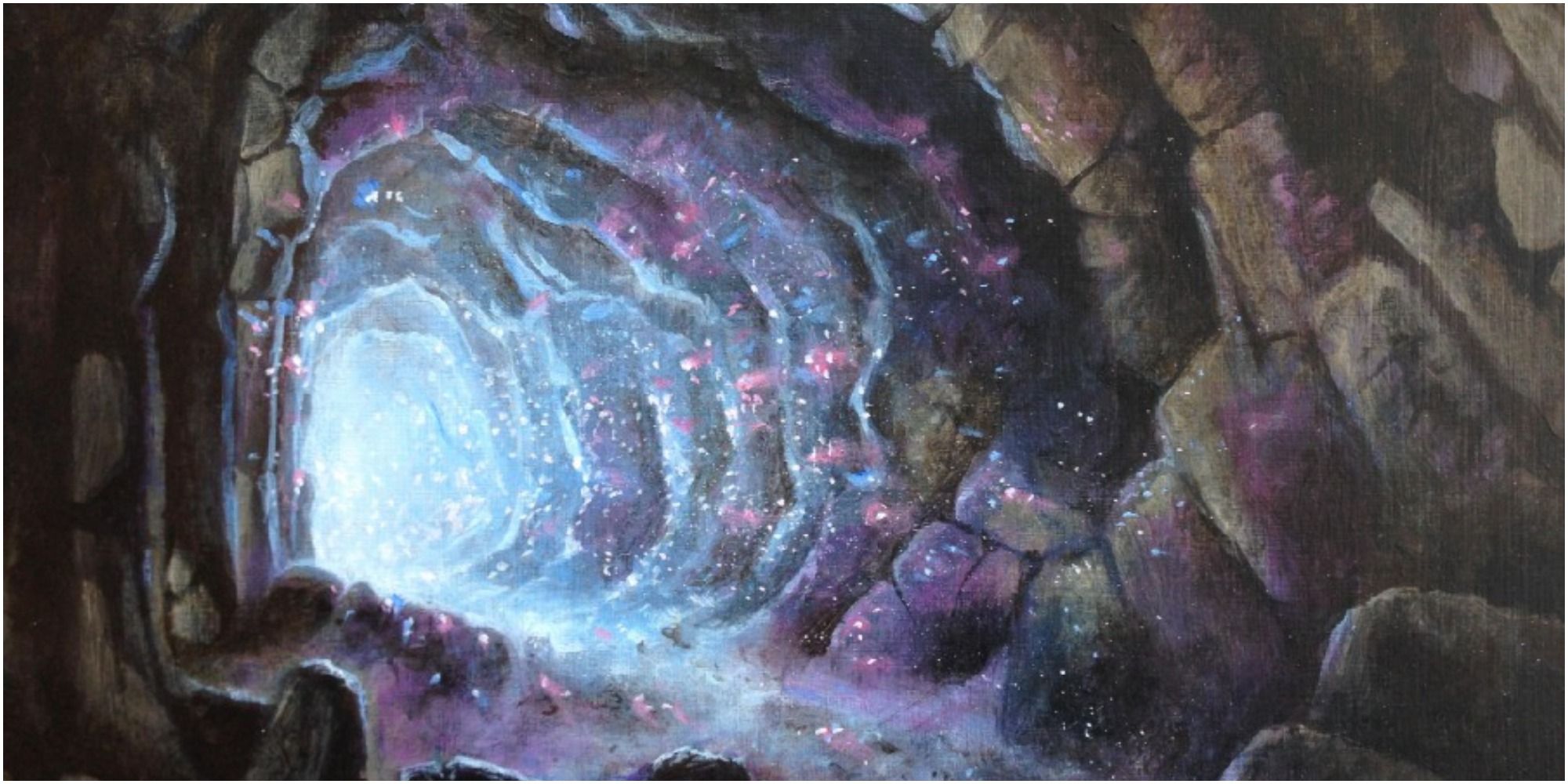
A magic mouth appears before the party and proclaims, "To continue I must be fed the fruit of the earth, not from a tree or bush but from the ground itself. I need a cherry and two grapes." This riddle will certainly confound the players, and even if they discover the answer they may not be able to answer.
The answer is gemstones; actual, physical, gemstones. The cherry should be a red gemstone like a ruby, and the grapes can be either two green gems like emeralds or two purple gemstones like amethysts (or a combination of the two). A DM should have the party find the gems before the riddle is asked.
3 "The rich want it, the poor have it, and both will perish if they eat it."
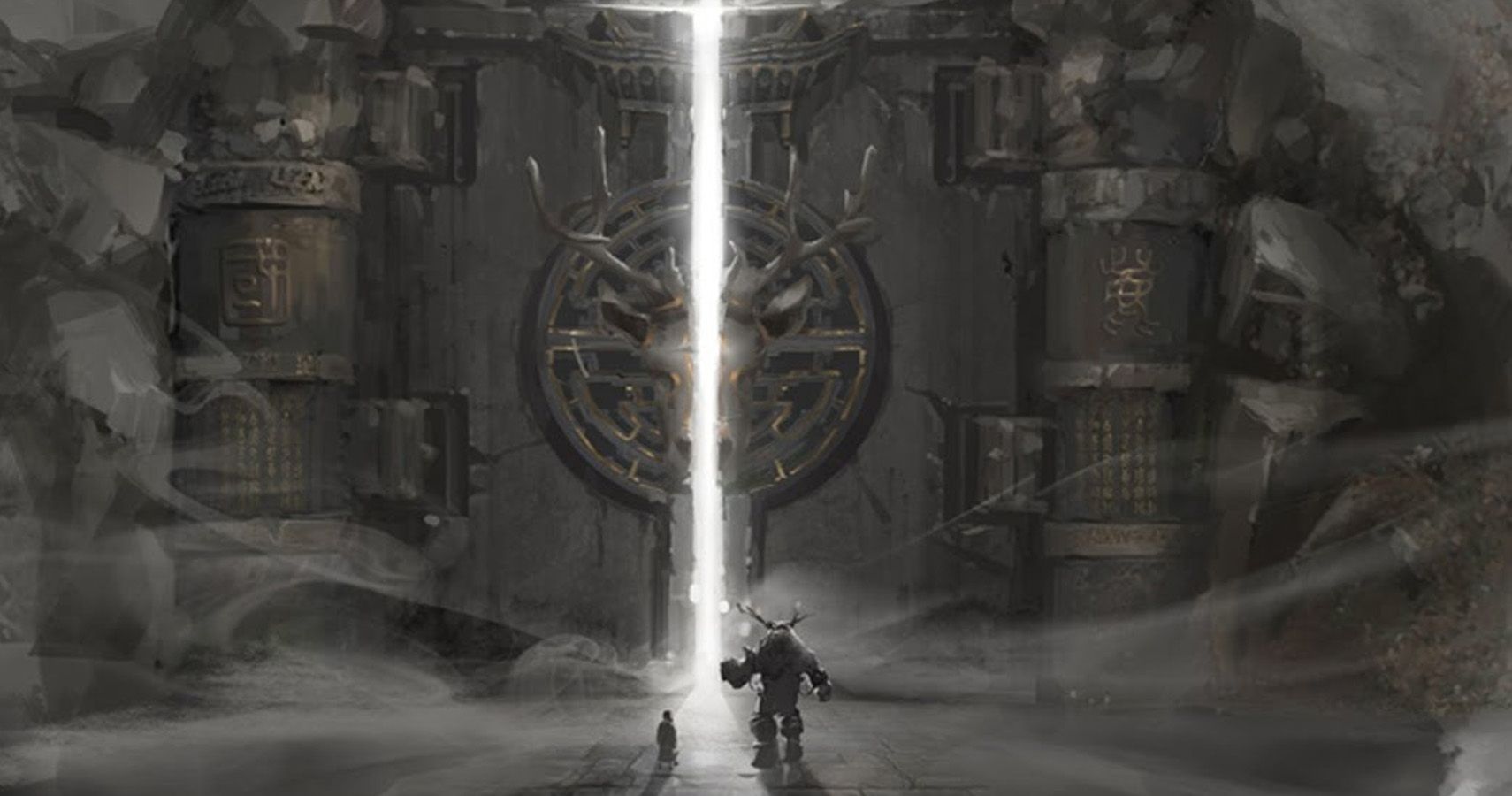
This riddle comes from Baldur's Gate 2 and is easy if the format for giving the solution is multiple choice like it is in the game. If the players must think of the answer, without having four choices to choose from, it becomes a little more difficult.
The answer is "nothing". The DM could give the party a set amount of time, like using an hourglass, to provide an answer in physical form. This might force the party to provide an incorrect answer or item without thinking that doing nothing is the right answer.
2 "Name me and so ye shall break me."
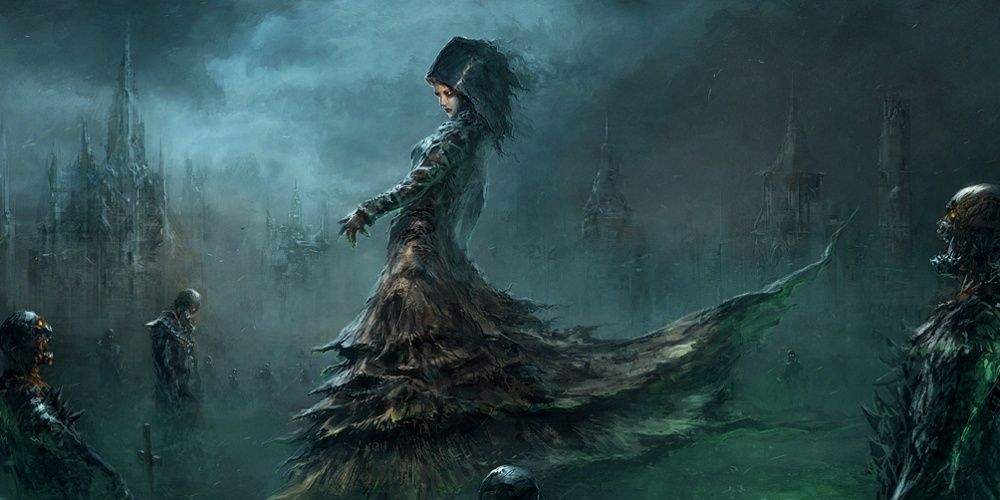
The answer is "silence". This also appeared in Baldur's Gate 2 and was one of many riddles that the player had to solve, not only to escape the confines of Irenicus' dungeon but also to acquire some nice gear and special items.
This riddle can double as a trap or a warning in a dungeon, prison, or other dangerous environments that require total silence. In the game, it was associated with a bust of a person that was gagged, which was intended as a clue.
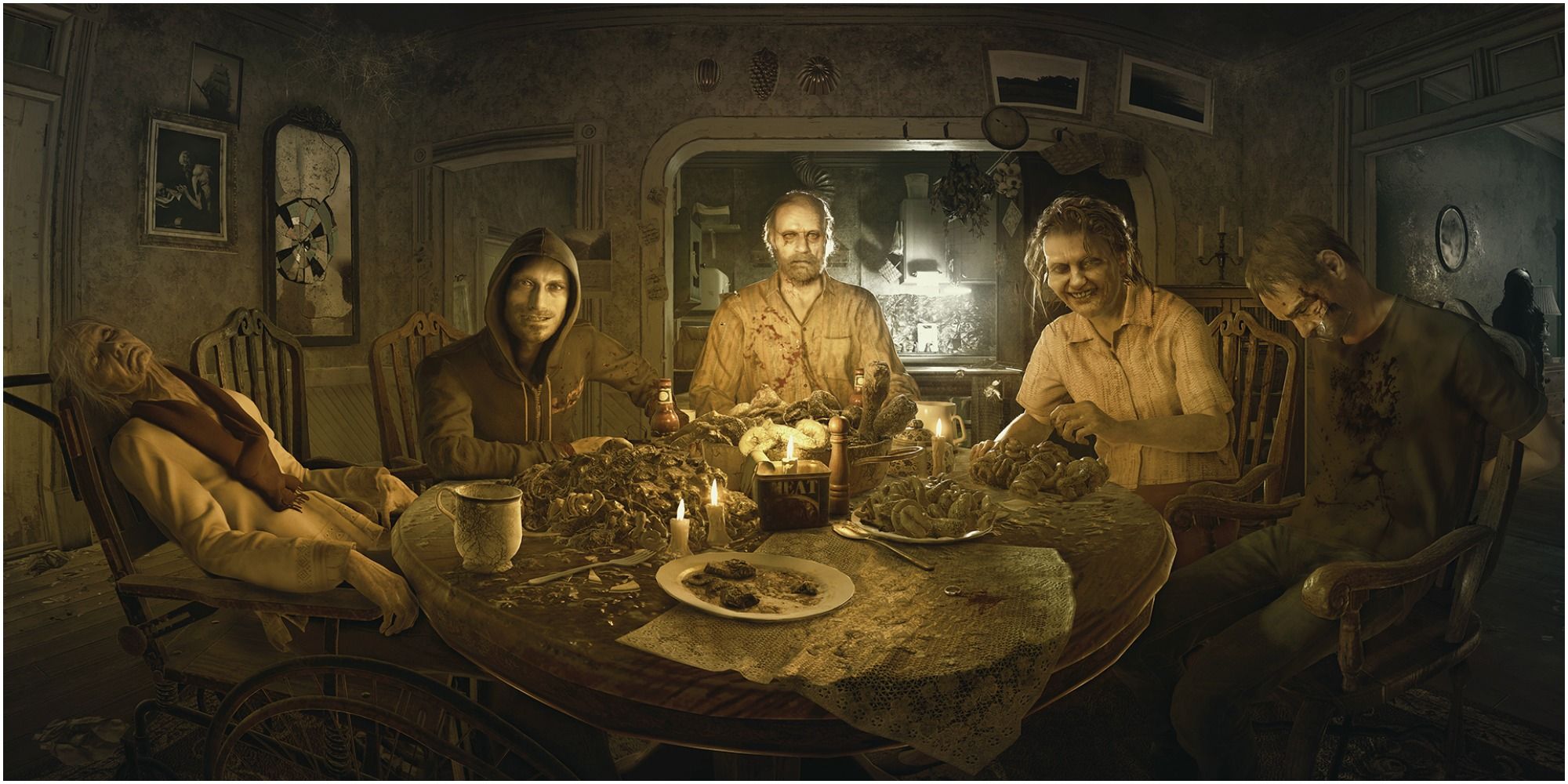
This riddle will probably cause the players to begin thinking of items that are commonly passed down from father to son, but it might take them a while to think of the correct answer, "a name".
A DM might require all the party members to say their names aloud to provide a solution to this riddle. This riddle might also be used by a creature or NPC of great power to learn who is in the party, and use this information against the party in the future.
Source: https://www.thegamer.com/dungeons-and-dragons-riddles-dm-use-challenge/
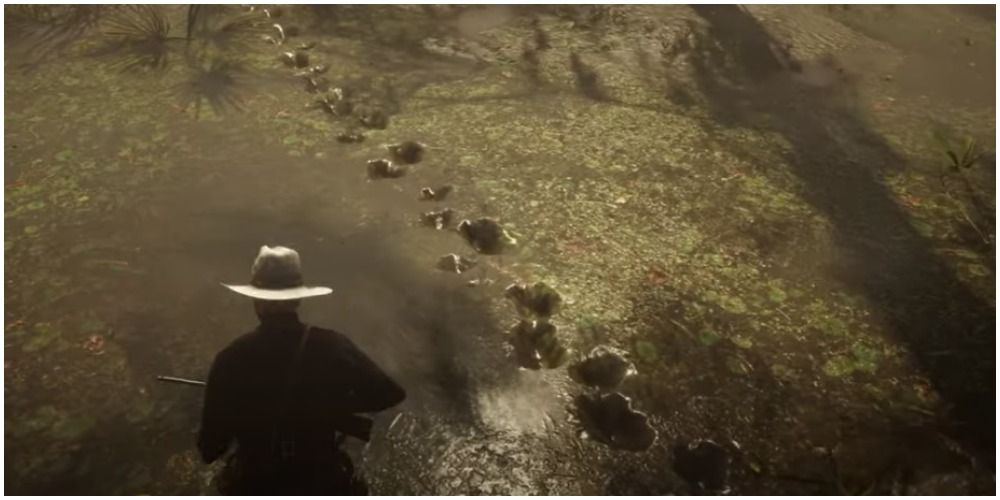
0 Response to "Moving Dragons Easy Magic Eye With Answers"
Enregistrer un commentaire